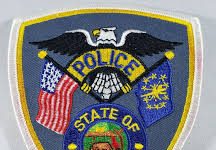Recently, President Donald Trump unexpectedly dissolved what was commonly referred to as the voting-fraud commission, saying it had been hampered by lawsuits and that the Department of Homeland Security will pick up the commission’s mission of sniffing out voting misbehavior. Here’s a quick history of the short-lived panel:
Even though no evidence has ever been proffered that millions of people voted illegally in the last presidential election…
Nov. 27, 2016: Trump made such claimsstarting days after he was elected, claiming on Twitter that he’d have won the popular vote “if you deduct the millions of people who voted illegally.â€
He continued to make similar claims and then…
May 11, 2017: Trump signed an executive order announcing the formation of the commission. The order indicated that it would investigate, among other things, issues “that could lead to improper voter registrations and improper voting, including fraudulent voter registrations and fraudulent voting.â€
Even before it held its first meeting, the commission sparked intense controversy…
June 28, 2017: Kris Kobach, the co-chair of the commission, sent out a letter to every state (in many cases, to the wrong office) requesting publicly available voter rolls. The letter caused confusion, as it requested information that isn’t public in any state — including Social Security numbers and military status of voters. Immediately, election experts saw red flags. You can’t find voter fraud in publicly available voter files, they said. There is not enough information, and the matches are too messy to draw any conclusions.
When it did meet…
July 19, 2017: Trump opened the first meeting, assuring the public the commission would be unbiased and fair. But by that point, several states had already refused to provide the requested data and lawsuits were under way.
So Kobach sent a second letter to states…
July 27, 2017: He pledged data would “be kept confidential and secure throughout the duration of the commission’s existence,†and he promised not to release “personally identifiable information from voter registration records.â€
Then the commission met again…
Sept. 12, 2017: This time, in New Hampshire. Democratic Commissioner and New Hampshire Secretary of State Bill Gardner hosted. The commission heard testimony on alleged voter fraud from one of its own commissioners, Hans von Spakovsky, and listened to John Lott (best known as the author of the book “More Guns, Less Crimeâ€), who advocated that voting authorities run background checks like those employed when buying a firearm.
But about that letter…
Sept. 30, 2017: A court filing by the Department of Justice showed emails between Kobach and two long-time voter fraud activists — J. Christian Adams and Hans von Spakovsky — drafting the controversial letter that requested troves of state data. Adams and von Spakovsky weren’t on the commission at the time, but would join later. Sitting members of the commission charged that they’d been denied the ability to see the letter before it was sent to states, even as two people who weren’t yet on the commission helped write it.
And then came the arrest for child porn…
Oct. 14, 2017: The Washington Post broke the news that a researcher for the commission, Ronald Williams II, had been arrested in Maryland after authorities say they found child pornography on his cell phone. (Williams has pleaded not guilty.) Williams had previously worked closely with Commissioner J. Christian Adams when they were both at the Justice Department. The commission declined to answer press queries about how Williams came to work for the commission, and commissioners Matt Dunlap and Alan King told ProPublica they had no idea he was on staff.
And questions arose about whether the commission could keep voters’ data safe…
Oct. 23, 2017: ProPublica raised questions about serious data security problems at Crosscheck, the program — created and run by Kobach — that he was championing as a tool to be used by the commission to sniff out fraud.
Dunlap decided to sue the commission he sat on…
Nov. 9, 2017: Dunlap filed suit in federal court, alleging that the commission had intentionally excluded him from deliberations and had violated federal transparency laws. By this point, it was one of several suits the commission faced.
The judge decided Dunlap had a point…
Dec. 23, 2017: The judge ruled in Dunlap’s favor, finding that Dunlap had been unlawfully denied access to materials that he needed to participate in the commission’s work, and that the commission must turn over those documents. The judge also ruled that Dunlap should have been allowed to consult on the letter Kobach drafted with von Spakovsky and Adams, and that he should have been allowed input into the agenda for the commission’s second meeting.
Business as usual, it seems; Kobach says the commission should meet again in January…
Dec. 30, 2017: Kobach told a local news outlet the commission would likely meet in January. This was news to Dunlap and King, who told ProPublica they hadn’t heard a thing about the commission ever meeting again.
And it turns out the commission won’t meet again.
Jan. 3, 2018: Shortly after the start of the new year, Trump canned it. Meanwhile, sources within the administration distanced the White House from the commission, telling CNN it was a “shit show†and telling Politico it was all Steve Bannon’s idea anyway. Kobach took to the airwaves, saying the commission’s work will continue through the Department of Homeland Security. But experts think those efforts could face many of the same problems that plagued the commission.







Choice! Dems, who for years have wailed that many of their voters are too dumb to obtain voter I.D’s therefore Republicans are suppressing the vote by requiring them, are now cheering the demise of the Presidential Advisory Commission On Election Integrity.
PROPUBLICA indeed.
Comments are closed.